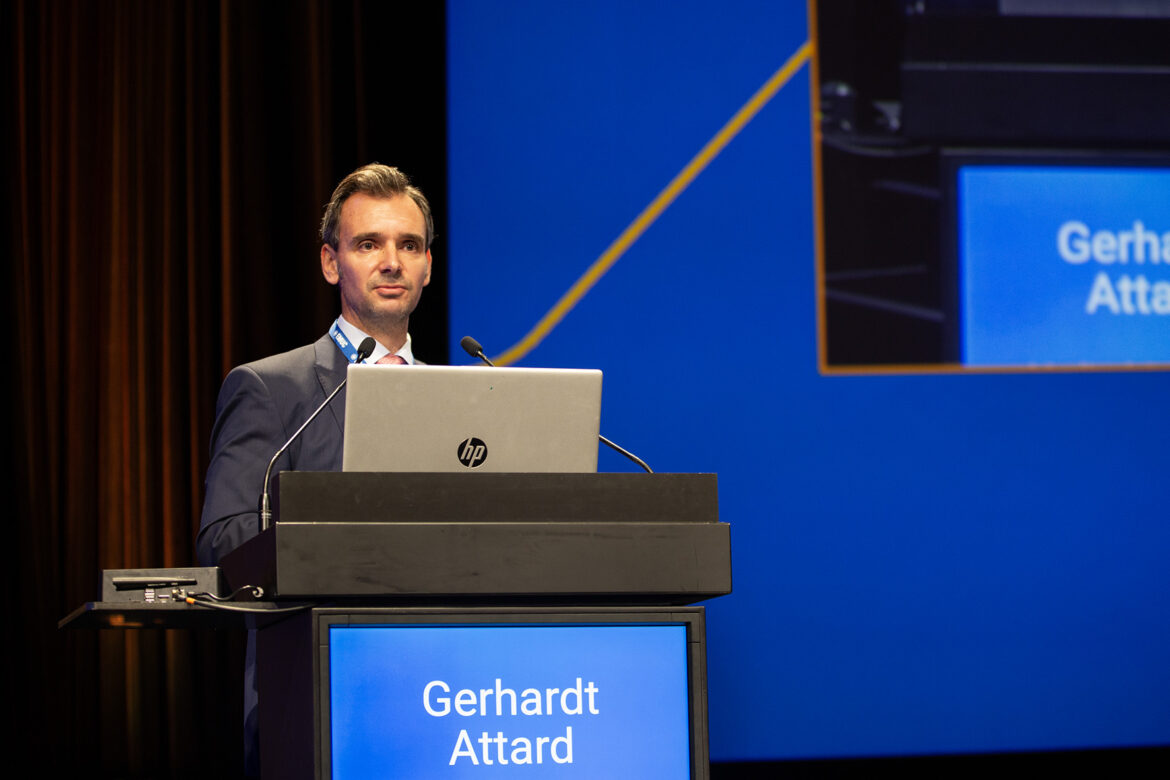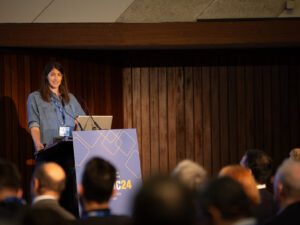Led by medical oncologist Dr. Pasquale Rescigno (GB), urologist and EAU Section of Urological Imaging Chair Prof. Francesco Sanguedolce (ES), and clinical oncologist Dr. Alison Tree (GB), Plenary session 12 “Prostate cancer: mHSPC & CRPC” commenced with lectures covering treatment response criteria, novel biomarkers, and stereotactic body radiation therapy (SBRT).
During “Treatment response criteria in mHSPC”, Dr. Wolfgang Fendler (DE), concluded that “Radiographic outcomes are number one for clinical trials on metastatic hormone-sensitive prostate cancer (mHSPC). Most of the radiographic response is often in line with or similar to the Prostate Cancer Working Group 3 (PCWG3) criteria.” He added that standardised reporting – prostate cancer molecular imaging standardised evaluation (PROMISE) – and PSMA-PET response criteria such as PSMA PET progression (PPP) and Response Evaluation Criteria in PSMA-imaging (RECIP) have been defined and are currently reviewed and renewed by the PCWG4.
Novel biomarkers
According to medical oncologist Dr. Gerhardt Attard (GB), the combination of androgen deprivation therapy (ADT), androgen receptor pathway inhibitor (ARPI) , and ARPI + radiotherapy (RT) (for low volume) should be the treatment backbone for mHSPC. “We want to intensify further treatments to that backbone. Molecular transcriptome expression-based tests could play a role in patient management but more data sets are required for practice change.”
In his presentation “Implementation of novel biomarkers for metastatic prostate cancer starting androgen deprivation therapy”, he also stated that clinical implications of some biological processes appear to differ by the metastatic state in terms of tumour load at presentation, underlying biology, and various treatment paradigms.
SBRT matters
In “Stereotactic body radiation therapy for oligoprogression in prostate cancer”, Dr. Tree stated that there is good evidence that RT for oligoprogressive prostate cancer improves PSA control. As seen in the ARTO trial, RT delays the time until the next treatment. More work is needed to determine if RT improves overall survival. She added that the optimal time to consolidate with RT is unknown or if it should be performed at different hormone-sensitive settings in the metastatic arena.
View the presentations in detail in the EMUC24 Resource Centre.




